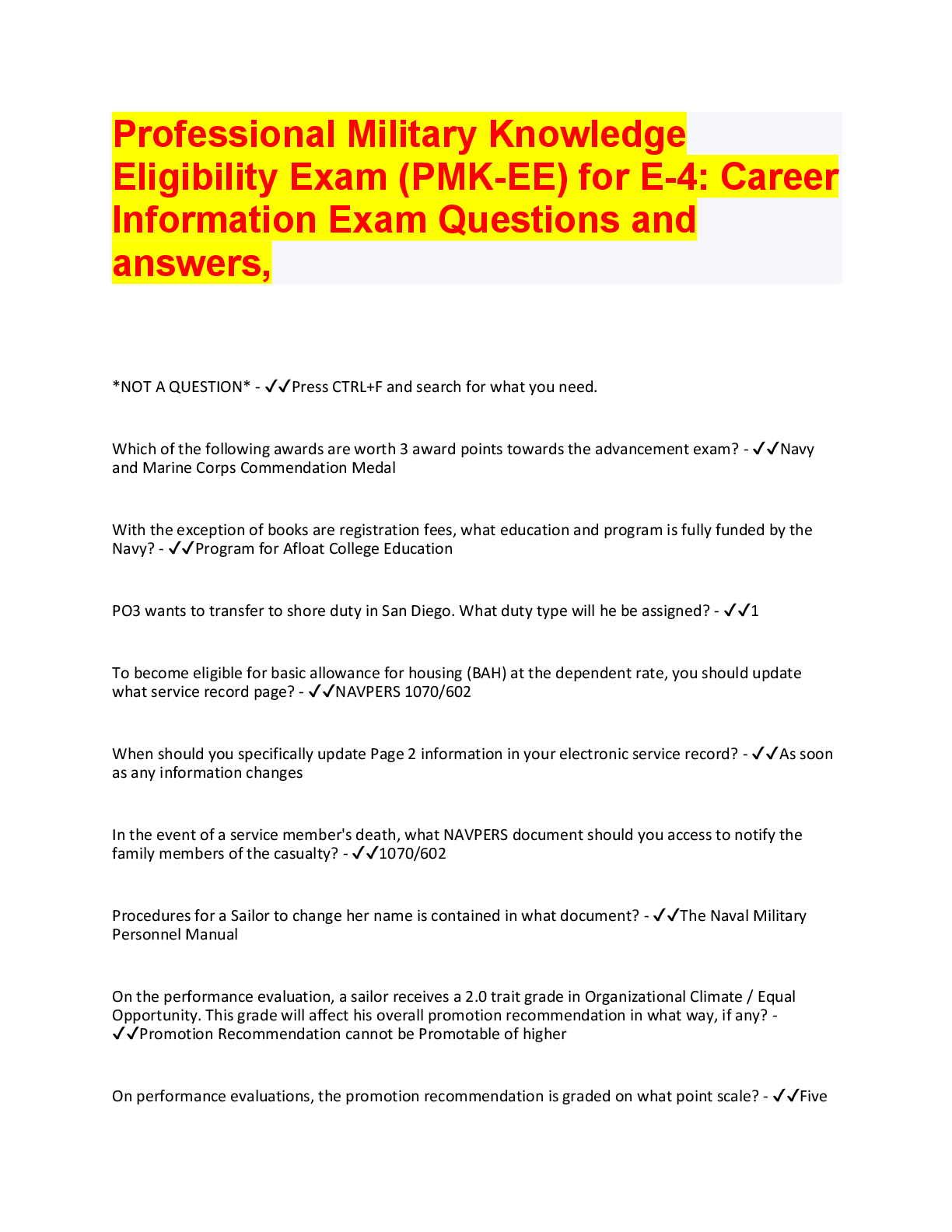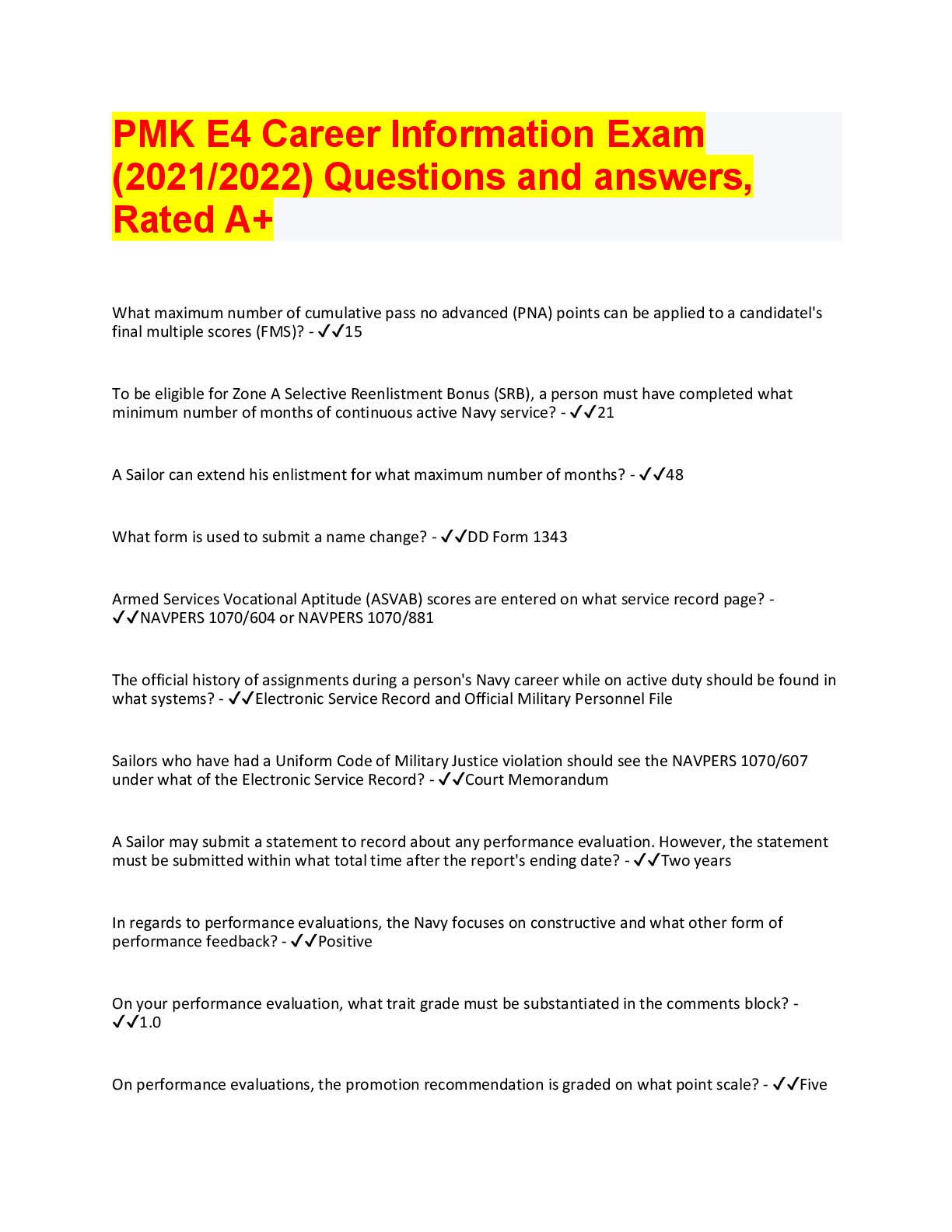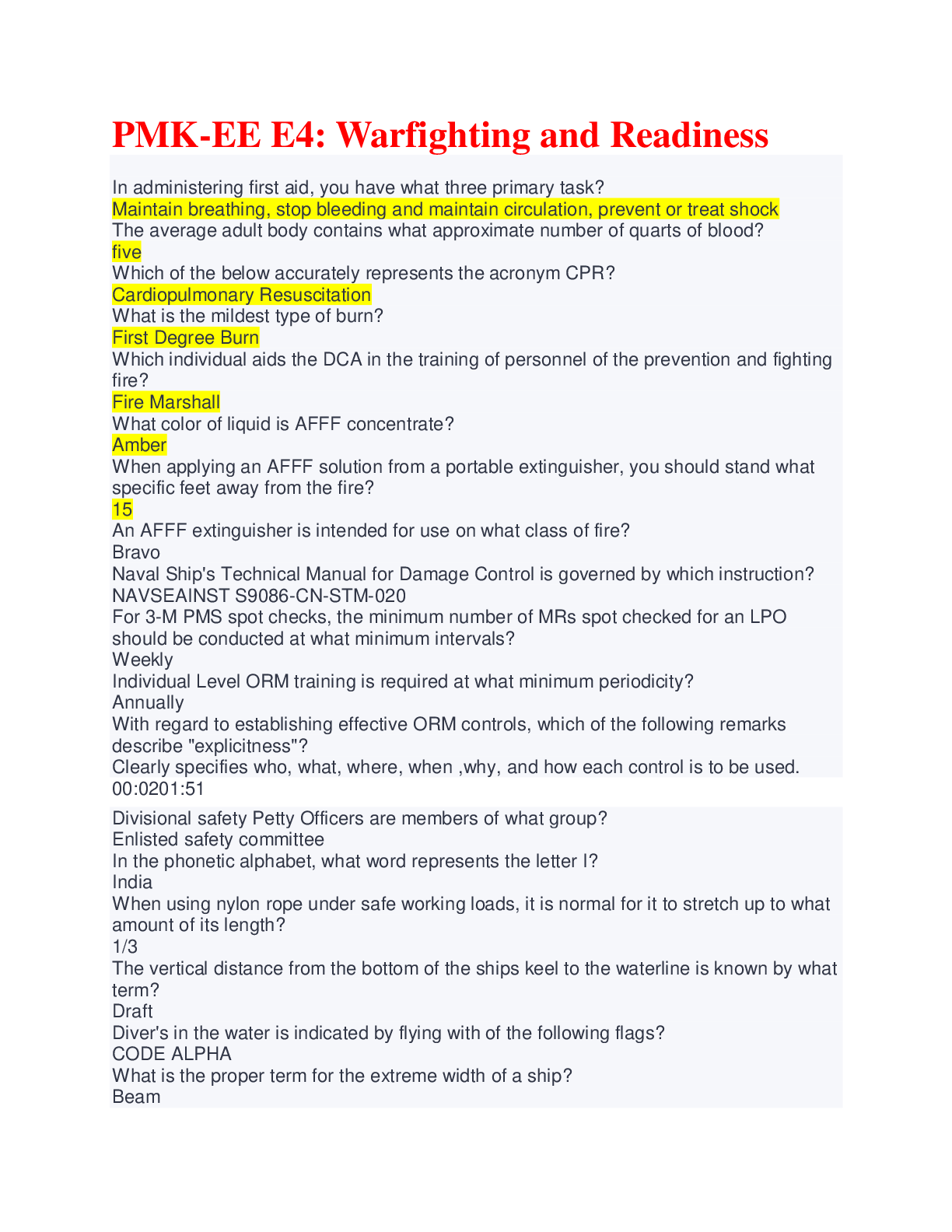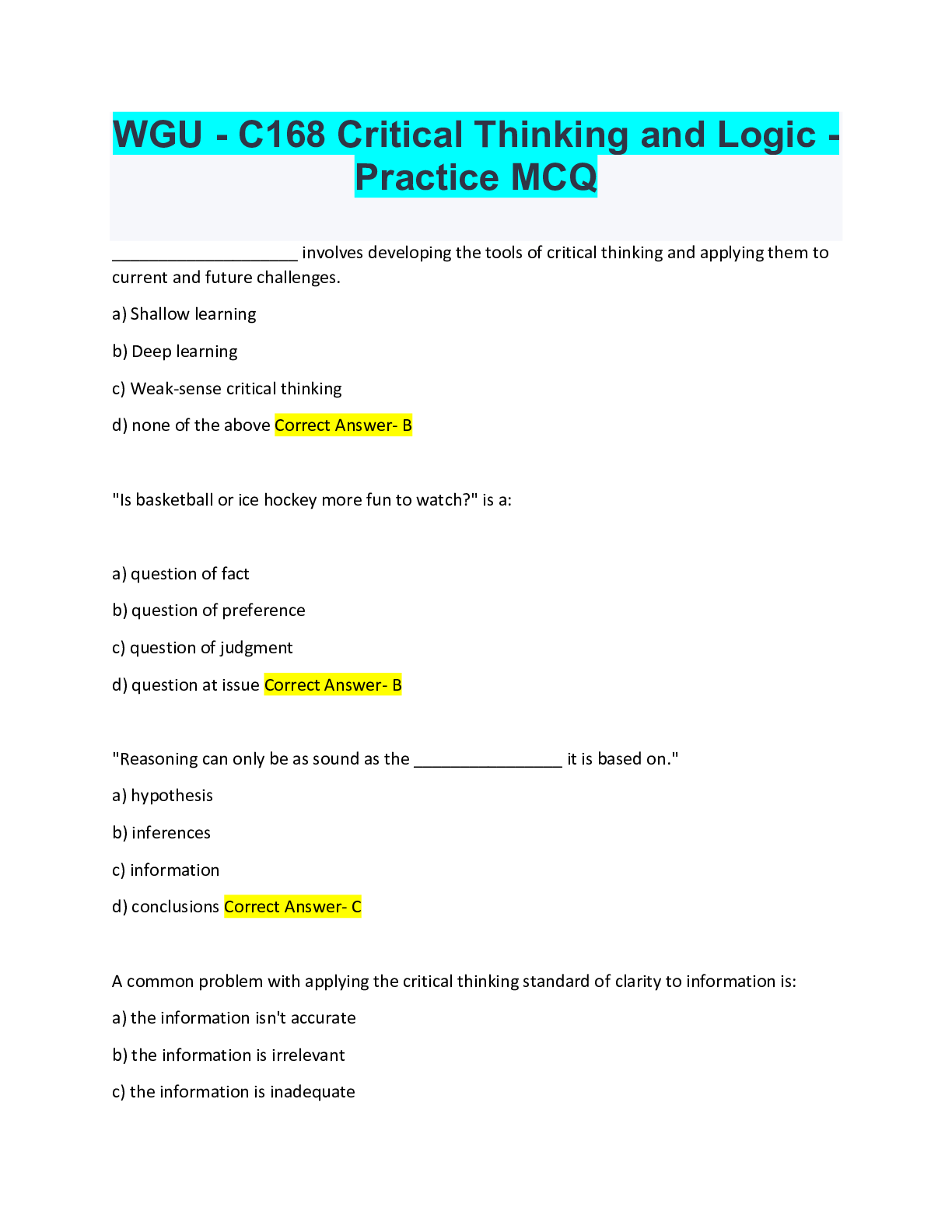General Science > QUESTIONS & ANSWERS > C168 WGU Critical Thinking and Logic June 2017 (All)
C168 WGU Critical Thinking and Logic June 2017
Document Content and Description Below
C168 WGU Critical Thinking and Logic June 2017 Clarity Correct Answer- Being unambiguous and easily understood Purpose Correct Answer- The goal or objective of reasoning Concepts Correct Answer- G... eneral categories or ideas by which we interpret or classify information used in our thinking Inference Correct Answer- A logical process of drawing conclusions Precision Correct Answer- Being precise or exact Implication Correct Answer- What logically follows from reasoning Assumptions Correct Answer- Unstated or hidden beliefs that support our explicit reasoning about something Point of view Correct Answer- The particular perspective from which something is observed or thought through Accuracy Correct Answer- Being near to the true value or meaning of something Egocentrism Correct Answer- The tendency to view everything in relationship to oneself and to regard one's own opinions, values, or interests as most importantFair-mindedness Correct Answer- The commitment to consider all relevant opinions equally without regard to one's own sentiments or selfish interests Fallacies Correct Answer- Flaws or errors in reasoning which, when found in the premise of an argument, invalidate its conclusion Intellectual cowardice Correct Answer- Fear of ideas or viewpoints that do not conform to one's own Intellectual empathy Correct Answer- The act of routinely inhabiting the perspectives of others in order to genuinely understand them Intellectual humility Correct Answer- Openness to the possibility that one's beliefs are mistaken and a willingness to reevaluate them in the face of new evidence or persuasive counterarguments Intellectual perseverance Correct Answer- The act of working one's way through intellectual complexities despite frustrations inherent in doing so Second-order thinking Correct Answer- Another term for critical thinking. It is first-order thinking (or ordinary thinking) that is consciously realized (i.e., analyzed, assessed, and improved) First-order thinking Correct Answer- Ordinary thinking that is spontaneous and non-reflective, contains insight, prejudice and good and bad reasoning, and is indiscriminately combined Sociocentrism Correct Answer- The assumption that one's own social group is inherently superior to all others; seeing the social conventions, beliefs and taboos of your society as the only correct way to live and think Sophistry Correct Answer- The ability to win an argument regardless of flaws in its reasoningStereotype Correct Answer- A fixed or oversimplified conception of a person, group, or idea Strong-sense critical thinking Correct Answer- Thinking that uses critical thinking skills to evaluate all beliefs, especially one's own, and that pursues what is intellectually fair and just Weak-sense critical thinking Correct Answer- Thinking that does not consider counter viewpoints, that lacks fair-mindedness and that uses critical thinking skills simply to defend current beliefs Common factor method Correct Answer- In analyzing causation, looking for a single shared factor Concomitant variation Correct Answer- In analyzing causation, looking for a pattern of variation between a possible cause and a possible effect Process of elimination Correct Answer- In analyzing causation, successively ruling out noncausal factors until one correct causal factor remains Question of fact Correct Answer- A question with one correct answer Question of judgment Correct Answer- A question with competing and debatable answers Question of preference Correct Answer- A question with many possible subjective answers Single difference method Correct Answer- In analyzing causation, looking for a causal factor that is present in one situation but absent in another similar situation Socratic questioning Correct Answer- A systematic, disciplined approach to asking questions aimed at assessing truthActivated Ignorance Correct Answer- False information that is mistakenly believed to be true and acted upon Activated Knowledge Correct Answer- Truthful information that is employed to pursue more knowledge and/or is acted upon Ad hominem fallacy Correct Answer- Dismissing an argument by attacking the person who offers it rather than by refuting its reasoning Appeal to authority fallacy Correct Answer- To justify support for a position by citing an esteemed or well-known figure who supports it Appeal to experience fallacy Correct Answer- Claiming to speak with the "voice of experience" in support of an argument (even when that experience may not be relevant) Appeal to fear fallacy Correct Answer- Citing a threat or possibility of a frightening outcome as the reason for supporting an argument Appeal to popularity/ popular passions fallacy Correct Answer- Citing majority sentiment or popular opinion as the reason for supporting a claim Attacking evidence fallacy Correct Answer- Seeking to falsely discredit the underlying evidence for an argument and thereby questioning its validity Begging the question Correct Answer- Asserting a conclusion that is assumed in the reasoning Bias Correct Answer- A partiality or prejudice that prevents objective consideration of an issue or situationDenying inconsistencies fallacy Correct Answer- Refusing to admit contradictions or inconsistencies when making an argument or defending a position Either-or fallacy Correct Answer- Assuming only two alternatives when, in reality, there are more than two Evading questions fallacy Correct Answer- Avoiding direct and truthful answers to difficult questions through diversionary tactics, vagueness, or deliberately confusing or complex responses [Show More]
Last updated: 2 years ago
Preview 1 out of 11 pages

Buy this document to get the full access instantly
Instant Download Access after purchase
Buy NowInstant download
We Accept:

Reviews( 0 )
$7.00
Can't find what you want? Try our AI powered Search
Document information
Connected school, study & course
About the document
Uploaded On
Sep 14, 2022
Number of pages
11
Written in
Seller

Reviews Received
Additional information
This document has been written for:
Uploaded
Sep 14, 2022
Downloads
0
Views
78












.png)
.png)
.png)
.png)
.png)
.png)






